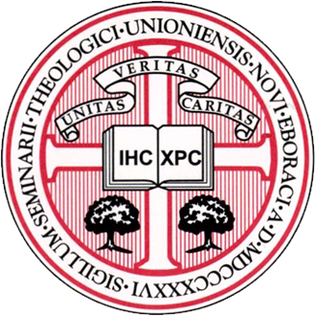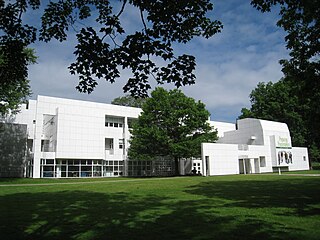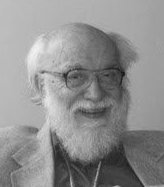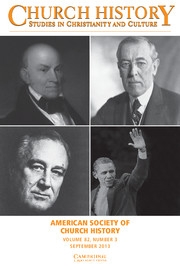Euan Cameron is the Henry Luce III Professor of Reformation Church History at Union Theological Seminary. He has a D.Phil from the University of Oxford. His work focuses on the Reformation and religion in the Late Middle Ages. [1]
Euan Cameron is the Henry Luce III Professor of Reformation Church History at Union Theological Seminary. He has a D.Phil from the University of Oxford. His work focuses on the Reformation and religion in the Late Middle Ages. [1]
The Reformation, also known as the Protestant Reformation and the European Reformation, was a major theological movement or period or series of events in Western Christianity in 16th-century Northwestern Europe that posed a religious and political challenge to the papacy and the authority of the Catholic Church. Towards the end of the Renaissance, the Reformation marked the beginning of Protestantism and in turn resulted in a major schism within Western Christianity.
Chalcedonian Christianity is a term referring to the branches of Christianity that accept and uphold theological resolutions of the Council of Chalcedon, the fourth ecumenical council, held in 451. Chalcedonian Christianity accepts the Christological Definition of Chalcedon, a Christian doctrine concerning the union of two natures in one hypostasis of Jesus Christ, who is thus acknowledged as a single person (prosopon). Chalcedonian Christianity also accepts the Chalcedonian confirmation of the Niceno-Constantinopolitan Creed, thus acknowledging the commitment of Chalcedonism to Nicene Christianity.
Michael Scott Horton is an American theologican who is the J. Gresham Machen Professor of Systematic Theology and Apologetics at Westminster Seminary California. He is a scholar and theologian, having written and edited more than forty books and contributed to various encyclopedias, including the Oxford Handbook of Reformed Theology and Brill’s Encyclopedia of Christianity.

Union Theological Seminary in the City of New York is a private ecumenical liberal Christian seminary in Morningside Heights, Manhattan, affiliated with Columbia University. Columbia University lists UTS among its affiliate schools, alongside Barnard College and Teachers College. Since 1928, the seminary has served as Columbia's constituent faculty of theology. In 1964, UTS also established an affiliation with the neighboring Jewish Theological Seminary of America. Despite its affiliation with Columbia University, UTS is an independent institution with its own administration and Board of Trustees. UTS confers the following degrees: Master of Divinity (MDiv), Master of Divinity & Social Work dual degree (MDSW), Master of Arts in religion (MAR), Master of Arts in Social Justice (MASJ), Master of Sacred Theology (STM), Doctor of Ministry (DMin), and Doctor of Philosophy (PhD).

Pittsburgh Theological Seminary (PTS) is a Presbyterian graduate seminary in Pittsburgh, Pennsylvania. Founded in 1794, it houses one of the largest theological libraries in the tri-state area.
The Radical Reformation represented a response to perceived corruption both in the Catholic Church and in the expanding Magisterial Protestant movement led by Martin Luther and many others. Beginning in Germany and Switzerland in the 16th century, the Radical Reformation gave birth to many radical Protestant groups throughout Europe. The term covers Radical Reformers like Thomas Müntzer and Andreas Karlstadt, the Zwickau prophets, and Anabaptist groups like the Hutterites and the Mennonites.

The Evangelical and Reformed Church (E&R) was a Protestant Christian denomination in the United States. It was formed in 1934 by the merger of the Reformed Church in the United States (RCUS) with the Evangelical Synod of North America (ESNA). A minority within the RCUS remained out of the merger in order to continue the name Reformed Church in the United States. In 1957, the Evangelical and Reformed Church merged with the majority of the Congregational Christian Churches (CC) to form the United Church of Christ (UCC).

Woodstock College was a Jesuit seminary that existed from 1869 to 1974. It was the oldest Jesuit seminary in the United States. The school was located in Woodstock, Maryland, west of Baltimore, from its establishment until 1969, when it moved to New York City, where it operated in cooperation with the Union Theological Seminary and the Jewish Theological Seminary.

The Hartford International University for Religion and Peace is a private theological university in Hartford, Connecticut.

George Wolfgang Forell was the Carver Distinguished Chair of Religion in the Department of Religious Studies at the University of Iowa. He was a scholar, author, lecturer, and guest professor in the field of Christian ethics.
Robert Kolb is professor emeritus of Systematic Theology at Concordia Seminary, St. Louis, Missouri, and a world-renowned authority on Martin Luther and the history of the Reformation.
W. Robert Godfrey is a minister in the United Reformed Churches in North America and formerly served as the third president of Westminster Seminary California. As of 2017 he is president emeritus and professor emeritus of church history. He currently is chairman of Ligonier Ministries, located in Sanford, Florida, a position he took over from the late Dr. R. C. Sproul.

Church History: Studies in Christianity and Culture is a quarterly academic journal. It is published by Cambridge University Press on behalf of the American Society of Church History, and was established in 1932. It is abstracted and indexed in the ATLA Religion Database. The editors-in-chief are Andrea Sterk, Euan Cameron, Dana Robert, and Laurie Maffly-Kipp. The journal is regarded as highly authoritative in its field, and is compared to the British Journal of Ecclesiastical History.

Burke Library of the Union Theological Seminary is located at 3041 Broadway, in the Morningside Heights neighborhood of Manhattan, New York City. Founded in 1838, since 2004 it has been a part of the Columbia University Libraries. Holding over 700,000 items, it is one of the largest theological libraries in North America.
The Post-Reformation Digital Library (PRDL) is a database of digitized books from the early modern era. The collected titles are directly linked to full-text versions of the works in question. The bibliography was initially inclined toward Protestant writers from the Reformation and immediate Post-Reformation era. In its current development the project is moving toward being a comprehensive database of early modern theology and philosophy and also includes late medieval and patristic works printed in the early modern period.

Frank Allison James III is an American theologian and academic administrator. He is the president of Missio Seminary in Philadelphia, Pennsylvania. He formerly served as Provost and Professor of Historical Theology at Gordon-Conwell Theological Seminary. His expertise is Reformation history, focusing especially on the life and thought of Peter Martyr Vermigli. He has authored and edited several books.
Richard Lints is the Vice President for Academic Affairs and Dean of Gordon-Conwell Theological Seminary's Hamilton Campus. He is also the Andrew Mutch Distinguished Professor of Theology at Gordon-Conwell and is an author. Lints has been with Gordon-Conwell Theological Seminary since 1986.

Joel Robert Beeke is an American Reformed theologian who is a pastor in the Heritage Reformed Congregations and the chancellor of Puritan Reformed Theological Seminary. Under the oversight of the Heritage Reformed Congregations, Beeke helped found Puritan Reformed Theological Seminary in 1995, where he served as president until he assumed the chancellorship in 2023. He teaches there as the professor of homiletics, systematic theology, and practical theology. Beeke has also taught as adjunct faculty at Reformed Theological Seminary and Grand Rapids Theological Seminary ; he was an adjunct professor of theology at Westminster Theological Seminary in Philadelphia, Pennsylvania, from 1993 to 1998; he lectured in homiletics at Westminster Seminary California in Escondido, California from 1995 to 2001; and he has lectured at dozens of seminaries around the world.

Keith A. Mathison is an American Reformed theologian.
Id Nostri Cordis was a papal bull of Pope Innocent VIII promulgated in Rome on April 27, 1487, which was the 5th Kalends of May 1487 on the Julian Calendar. It was later repeated and signed again in the convent of St Laurence in June 26, 1487. The bull outlined a plenary indulgence (forgiveness) for anyone who joined the crusades against the Waldensians. His commands extended to religious and secular powers and threatened excommunication for those who did not join. A copy of the original bull was kept in the Library at Cambridge for many years and is currently held in the unpublished medieval manuscripts Ms Dd.3.25. However, Trinity College Dublin in March 2023 has since published the Waldenses Prose document Processus Contra Waldenses which contains a copy of the bull in MS 266.